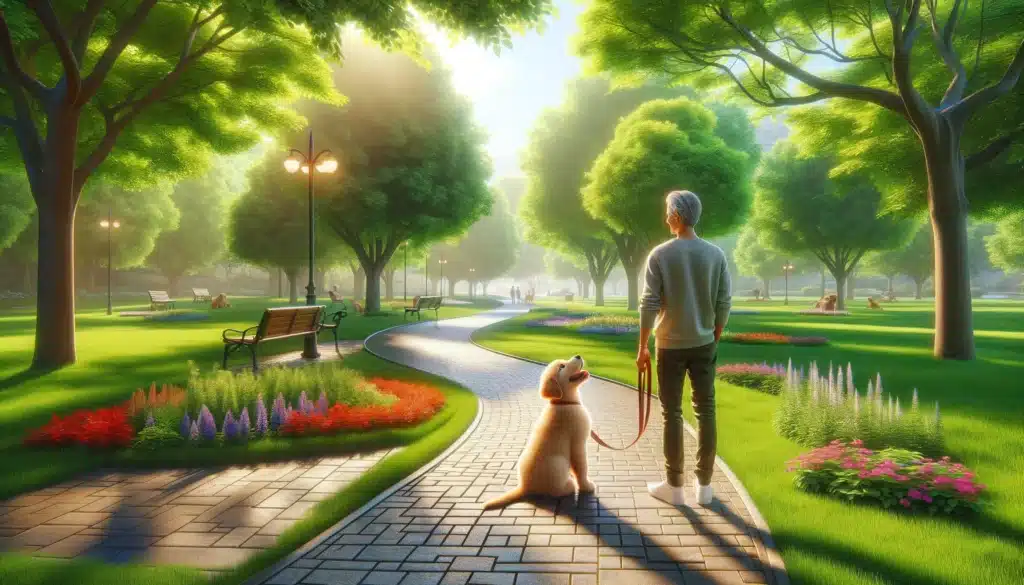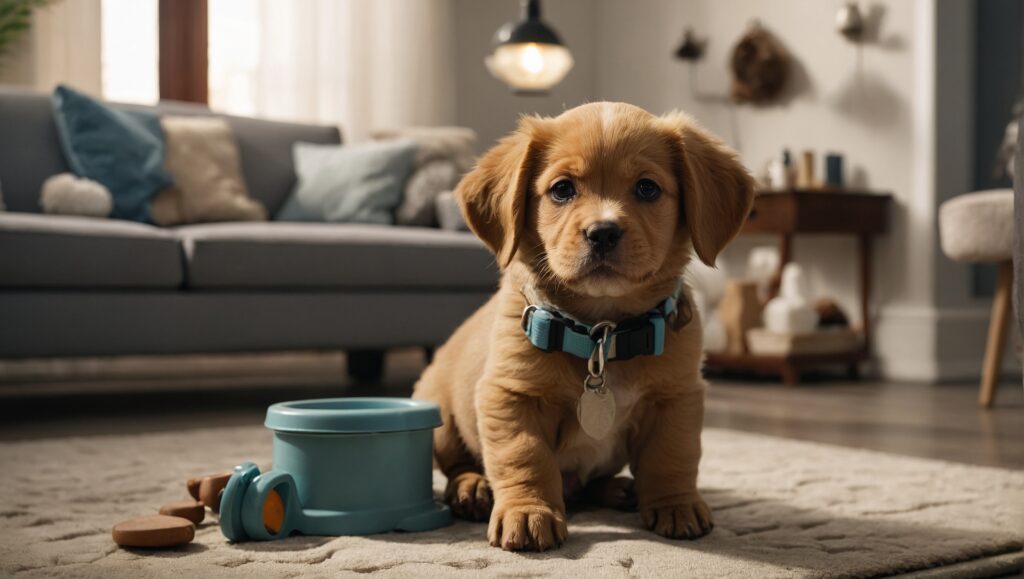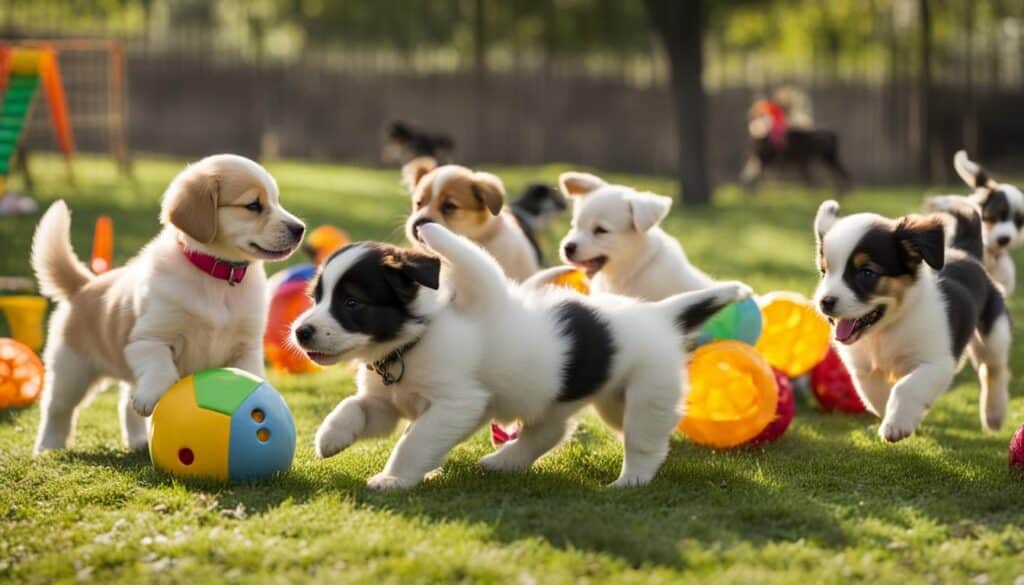
Puppy Socialization Mistakes to Avoid
It is necessary to understand the Critical Socialization Window in Puppies. Puppies aren’t born with an innate understanding of navigating the world – they must learn it through experience. One of the most important aspects of raising a confident and well-adjusted pup is socialization, and timing is everything.
What is the critical socialization period?
The critical socialization period for puppies usually falls between 3 and 16 weeks old. During this window, their brains are primed for learning about everything in their environment. Positive experiences help them form healthy associations and build a foundation for a happy and confident mature dog.
Why timing is crucial for puppy socialization
Think of this socialization window as a unique opportunity. If a puppy interacts positively with people, animals, and environments, they’re likelier to see them as usual and non-threatening. On the other hand, if they miss out on these experiences, they may develop fear, anxiety, or reactivity as they get older. These issues can be much more complex to correct later in life.
Maximizing the socialization window for lifelong benefits
- Building Confidence: Each positive exposure to new people, animals, sounds, or places builds a puppy’s confidence, especially when their curiosity is rewarded with praise and treats. A confident dog is less likely to be fearful or reactive in new situations.
- Developing Social Skills: Puppies learn the fundamentals of dog-to-dog and dog-to-human communication through play and social interaction. Well-socialized dogs greet politely, “read” the body language of others accurately and engage in play without resorting to aggression.
- Reducing Fear and Anxiety: Early exposure in a controlled and positive way helps desensitize puppies. They learn that the sounds of traffic, a trip to the vet’s office, or children playing are part of life, not things to fear. This minimizes the chance of phobias or severe anxiety developing.
- Enhancing Adaptability: Puppies that experience a variety of environments become adaptable mature dogs. They’ll be better able to cope with kennel stays, visits to the groomer, travel, or even move to a new home, making them more accessible and less stressful.
- Improving Overall Well-Being: A dog with solid social skills and confidence has a better quality of life. They’re less likely to engage in destructive behaviors due to boredom or anxiety, bond more strongly with their humans, and enjoy participating in activities like walks, dog parks, or trips. This all adds to a happier, healthier, and more balanced dog!
Common Mistakes People Make When Trying to Socialize a Puppy
Even with the rightintentions, puppy owners can make mistakes that hinder socialization instead of helping. Here are some common pitfalls to avoid:
Overlooking the importance of varied experiences:
Many people focus on socializing their puppies with other dogs and people but forget that puppies need exposure to a wide variety of things. This includes:
- Different surfaces: Grass, tile, carpet, slippery floors
- Novel objects: Umbrellas, bicycles, strollers, wheelchairs
- Sounds: Traffic, loud appliances, music, fireworks
- Handling: Being comfortable with paws, ears, and tail being touched
Mismanaging introductions to new dogs and people.
Allowing a puppy to be overwhelmed by too many dogs at once or letting strangers pet them without proper introduction can backfire. Puppies need time to adjust:
- Small groups: Limit puppy playgroups to 2-3 well-socialized dogs.
- Enthusiastic greetings: Teach children to approach slowly and let the puppy come to them.
- Watch body language: If your puppy looks scared or overwhelmed, step in and give them space.
Failing to associate new experiences with positive outcomes:
Simply taking your puppy to the vet isn’t enough. Make these experiences positive!
Bring treats: Ask your vet and groomer to give treats during procedures.
- Fun outings: Don’t just take your puppy to scary places; make walks and car rides enjoyable.
- Reward calm behavior: Praise your puppy for being relaxed around new things.
Why and How to Socialize Your Puppy Before Full Vaccination
Understanding the balance between socialization and health safety
It’s a tricky balance: puppies need early socialization but are also vulnerable to diseases before completing their vaccination series. Luckily, it’s not an either/or situation.
Creative ways to expose your unvaccinated puppy to new experiences safely
- Puppy carrying case: Take them on walks in a carrier or stroller. This allows them to see, hear, and smell the world without risking direct contact with potentially contaminated surfaces.
- Friends with friendly, vaccinated dogs: Arrange puppy playdates in your home or yard with dogs you know are healthy and up-to-date on shots.
- Controlled environments: Some pet stores, community centers, or dog trainers offer puppy socials for incompletely vaccinated pups. These areas are often cleaned more rigorously and require proof of vaccination for entry.
- Your backyard: If you have a safe, fenced-in yard, invite familiar people (wearing different hats, carrying bags, etc.) to introduce your puppy to new sights.
The role of puppy training classes in early socialization
- Many puppy classes require up-to-date vaccinations, offering a safer environment for social interaction.
- Classes provide a structured way to learn basic obedience commands alongside controlled socialization with other young dogs.
- Trainers can offer guidance on safely introducing your puppy to new experiences while minimizing health risks.
Always consult with your veterinarian about your area’s specific risks and create a personalized socialization plan for your puppy. They can help you weigh the risks and benefits and offer advice on keeping your puppy safe while still getting them the socialization they need.
Mistakes to Avoid at the Dog Park and Other Social Settings
The dog park seems like a socialization dream, but it can be a recipe for problems if you need more preparation! Here’s what to keep in mind:
Knowing when your puppy is ready for the dog park
- Fully Vaccinated: This is a must for health reasons!
- Basic Obedience: Your puppy should have a reliable recall (come when called) before venturing off-leash.
- Positive Dog Interactions: If your puppy has yet to have success playing with other dogs in controlled spaces, the dog park might be too much too soon.
Common dog park mistakes made by new puppy owners
- Not paying attention: Chatting or scrolling on your phone while your puppy plays is tempting. But you must actively supervise to intervene if play gets too rough or your puppy seems overwhelmed.
- Forcing interactions: Don’t let your puppy be bullied or be the bully! Step in if they’re getting picked on or relentlessly pestering another dog.
- Overstaying their welcome: Short, positive visits are good for puppies. Watch for signs of tiredness or stress and leave before things escalate.
How to properly introduce your puppy to another dog
- Parallel walking: Start by walking two dogs on leash in the same direction, with space between them. This allows them to assess each other without feeling pressured.
- Sniff greetings: If both dogs seem relaxed, allow a brief sniff under supervision.
- Respect their space: Don’t force dogs to interact if they show signs of stress (tucked tail, pinned ears, avoidance).
Not every dog enjoys the dog park, and that’s okay! There are many other ways to socialize your dog.
The Importance of Consistent, Positive Puppy Training Techniques
Consistency and positive reinforcement are not only vital for teaching your puppy good manners, but they also actively support your socialization efforts.
Why consistency is critical in socializing and training your puppy
Puppies thrive on predictability. Consistent rules and expectations help them understand what’s acceptable and not, reducing confusion and anxiety. This creates a sense of security and allows them to approach new situations confidently.
Avoiding negative reinforcement and staying positive
Techniques like yelling, scolding, or physical punishment damage your relationship with your puppy and can create fear and mistrust. This often leads to behavior problems, making them less receptive to training and socialization.
Focus on rewarding the behaviors you DO want. Use tasty treats, praise, and playtime to reinforce calmness around new people, dogs, and experiences. This teaches your puppy that positive things happen when they’re well-behaved.
Basic commands that support socialization efforts
Simple commands are essential for keeping your puppy safe and managing social situations:
- Sit: Useful for calming your puppy down during greetings or when things get overwhelming.
- Come A reliable recall lets you remove your puppy from situations if they’re getting stressed.
- Leave it: Helps prevent them from sniffing or eating inappropriate things when out and about.
- Stay: Teaches your puppy to wait patiently while you interact with others or assess a new situation.
Take things at your puppy’s pace. Every dog learns differently. Positive reinforcement is the foundation of successful training and a well-adjusted social butterfly!
Starting Puppy Socialization: Practical Tips and Strategies
Here’s how to turn socialization theory into action:
Setting a socialization goal for your new puppy
Consider your lifestyle and what kind of dog you’d like to have as an grown up. Then, set a goal! Examples:
- “I want my puppy to be comfortable on busy city streets.”
- “My puppy should be able to go to the vet without becoming terrified.”
- “I want to take my dog hiking, so they must be friendly towards strangers and other dogs.”
How to gradually expose your puppy to novel situations
Start small and gradually increase the challenge:
- Adjust distance: Let your puppy observe a scary object (like a skateboard) from afar, then slowly move closer as they seem more comfortable.
- Control the intensity: Introduce a new sound softly at first, then gradually increase the volume if they tolerate it well.
- Short and sweet: Keep early socialization sessions brief and end positively.
When to seek professional help for socialization issues
- Severe Fear: If your puppy is abnormally fearful or panicky in new situations
- Reactivity: If they growl, lunge, or bark excessively at people or dogs.
- Resource Guarding: If your puppy becomes possessive of food or toys or shows aggression.
A qualified dog trainer or veterinary behaviorist can help you address these issues and tailor a socialization plan for your puppy’s needs and temperament.
Socialization is an ongoing process, not just a puppyhood task. Keep exposing your dog to new experiences throughout their life to keep those social skills sharp!

